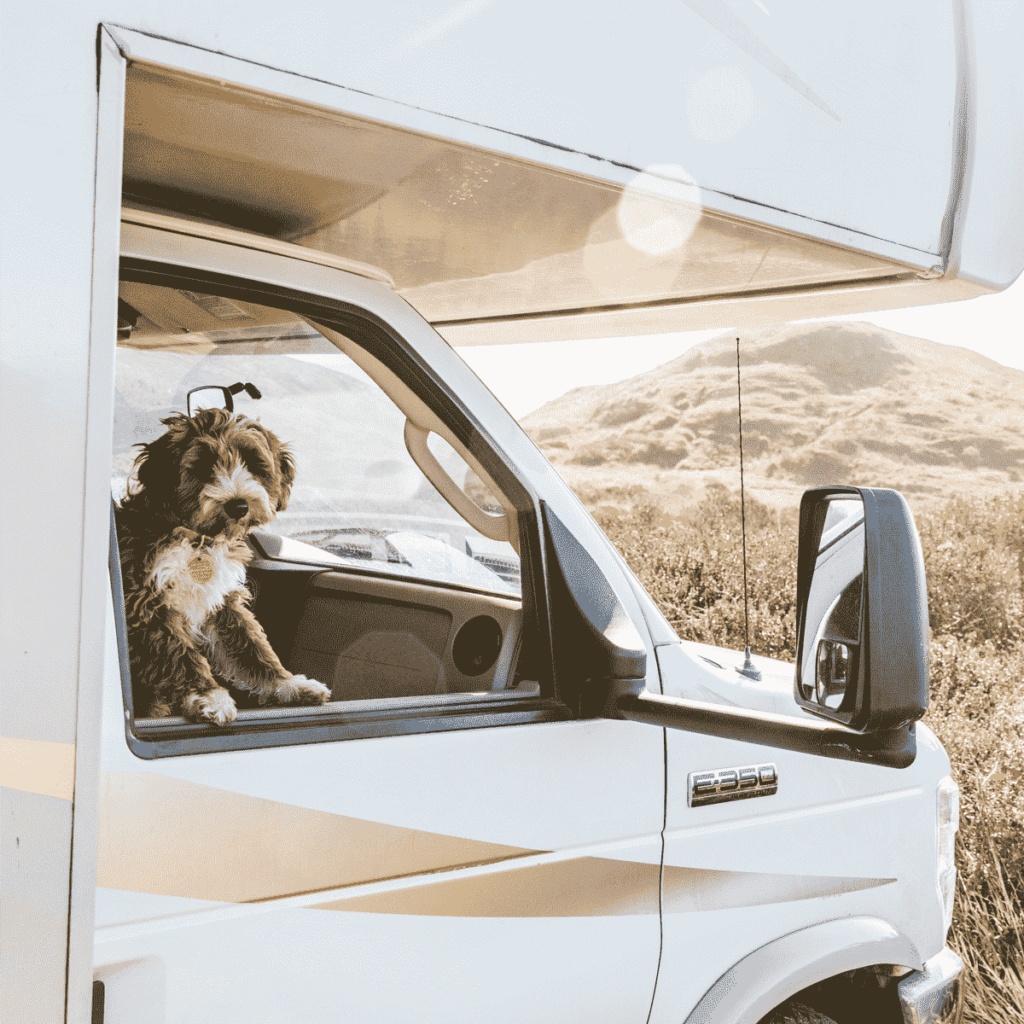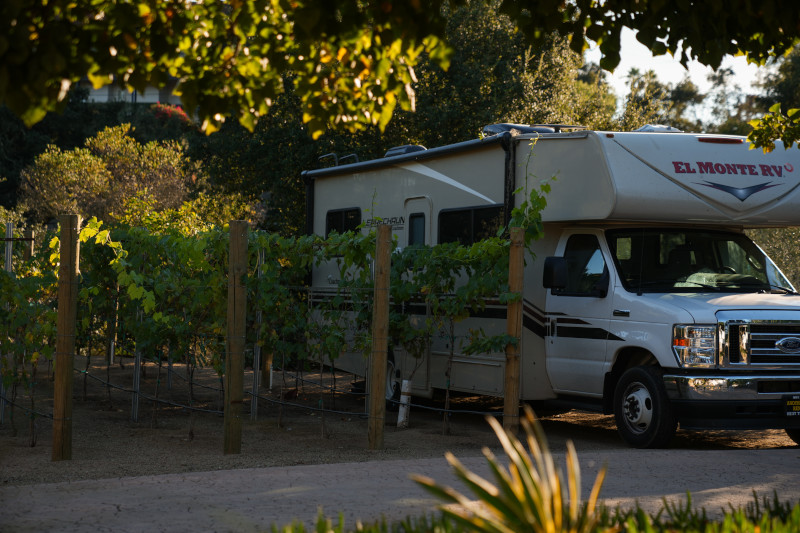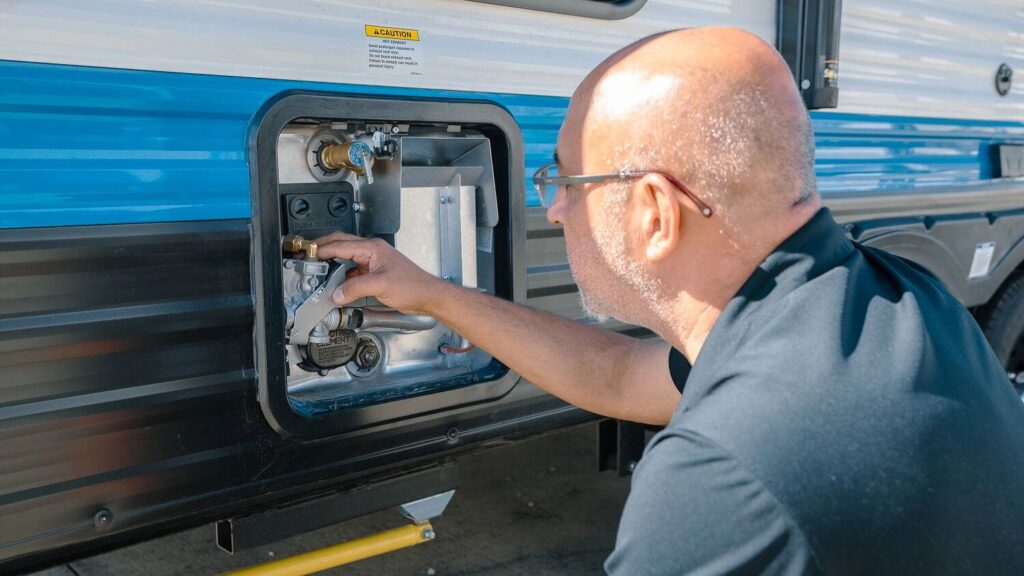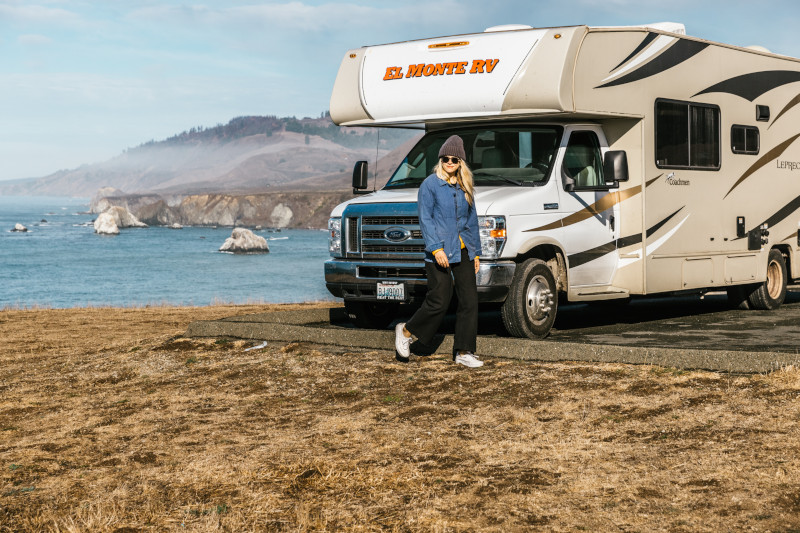What you may not realize about your RV is that sometimes you will want to store it and when doing so, you should do it carefully so that damage is minimal and you preserve the integrity of the RV’s water and electrical systems, in particular. Here are some tips from the experts about storing your RV, but first why would you store your RV?
Why Would I Store my RV?
Perhaps your neighborhood has some restrictions about parking RV’s there or you want it to be off your property and in a proper RV storage facility. Sometimes you know you are not going to use your RV for several weeks or months so you want to put it in a location where it will be safely kept and in good condition when you come back to use it again. Sometimes, if for winter, you would want to make sure you winterize your RV and then store it.
Where Should I Store my RV?
Here are some ideas for where you can store your RV if you cannot keep it at your home.
Friends/Relatives’ Property: Keeping your RV on a property with a friend or family member to watch over it can do a great deal for your piece of mind.
RV Parks: This is a great short-term storage solution. Monthly rates make this very affordable! The bonus of electrical hook-ups make this a great choice. Search Google for ‘RV parks near me.’
RV Storage Lots: For around $100/month you can find a great indoor or outdoor storage lot for your RV. Make sure to trust your gut feeling about safety when you pick the place. Search Google for ‘RV storage near me.’
RV Repairs & Maintenance: If you need repairs or maintenance, coordinating these with a time you would need to park your RV for a period of time is a way to kill two birds with one stone.
Clean it first.
It may seem counterintuitive, but before you store it, give your RV a good wash and wax. The RV wax will help protect your RV from sun damage and keep the dirt from building up. This makes cleaning up after storage much less stressful and time consuming. Once it is clean, take a good look at the silicon seams, caulking and rubber seals. Repair any cracking or peeling (try an RV sealer) to ensure there are no leaks or ways for insects to make your RV their home.
Make sure you have good ventilation.
You don’t want to open the door to a moldy, musty smelling RV. Not a great way to start a vacation. A great suggestion is to leave the roof top vents open. With the right RV vent covers, you will get the air circulation you need without the moisture.
Make sure you give it plenty of light.
Your first instinct would be to close your night time shades. Fight the urge! If you have a small leak, closing all of your curtains or using night shades will produce a dark, damp environment perfect for growing mold and mildew. Very yucky! If you do happen to get a bit of moisture in your RV, light will combat the mold that could grow.
Make sure to retract all of your slide-outs for storage.
This way the mechanical parts, roof, slide toppers and rubber seals are not exposed to the elements and there is less chance for leaks. Make sure to clean the rubber RV seals, roof and mechanical parts underneath.
Keep Pests Out:
It is important to make sure all external openings are blocked off or screened. Popular spots for bugs to start a party are rooftop plumbing vents, inside the exterior fridge panel and vent, the furnace exhaust and air intake piping. Also, stuffing steel wool and spray foam into possible underbelly access points will help keep rodents (YUCK) out and away from making your RV their new home.
Here are some additional tips for avoiding pests in your RV:
- Get rid of ALL food: Avoid temptation for those pesky RV invaders.
- Set out bowls of moth balls to deter rodents: They don’t like the smell.
- Seal access holes around tubes and hoses: You would be amazed at how small of an opening a rodent can sneak through.
- Seal your firewalls: A scrap piece of metal over the gap will save you the pain of a rodent taunting you from inside your RV next winter.
Power Down:
Make sure your RV “Deep Cycle” batteries are fully charged before storage. No one wants a dead battery when they are ready to go on vacation! Also, having the battery fully charged will assure it doesn’t freeze in cold weather. Once you do that, use the battery disconnect switch to make sure all power sources are disconnected. If you do have an RV solar power source, leave it plugged in to maintain the battery at full charge. It will feel really good when your RV starts right up in the spring.
Drain it Dry:
If there is any chance of freezing you should remove ALL water from the plumbing system including the water heater tank. Adding a bit of antifreeze into the piping, valves, drain “P” traps and a little bit into each waste tank will help make sure you don’t have leaks and broken pipes or hoses. How to Winterize Your Water System is a great step-by-step guide to assure you don’t have a disaster on your hands when you are ready for your next trip.
Roll On:
Nothing can derail a vacation faster than a blown tire. Keep your tires in tip-top shape and make sure they are clean and out of direct sunlight. Moving your RV every couple of months is a great idea, as long as you are not doing it in extreme cold conditions. If you can put the RV on leveler blocks to avoid pressure on one part of the tires, even better! Here are some more tips for tires: Goodyear Recreational Vehicle Tire and Care Guide.
Winterize:
Winter is hard on everyone and freezing temperatures can be especially detrimental to your RV. No one wants to start the RV season off with a hefty repair bill. Don’t miss these great tips and helpful hints for winterizing your RV.
Here are some bonus tips for you:
1. To cover or not to cover? While it may be a pain to get on and off, covering your RV can save it from a lot of costly damage. Mother Nature is not always kind to RV materials such as plastic, fiberglass, rubber and vinyl. The sun will take the sparkle and color right off your beautiful RV.
2. Remove everything anywhere that has to do with food. And paper. Ok-pretty much take it out if it’s not nailed down. Pests like to make nests out of anything they can find, and they are attracted by the food you forgot to take out of the pantry.
3. For you own safety and that of your nasal passages, make sure to clean out your fridge and freezer and prop them open to have air flow during storage. Keep the fridge and freezer turned off and doors propped open slightly to allow air to circulate and prevent mold buildup.
4. Lock it up! Curious neighbor kids, bored teenagers, and people up to no good are a threat to a perfectly tucked in RV. A great way to secure your RV better than the locks that came on it is to invest in a lock that goes around the kingpin. Pad locks and cylinder locks are great options as well. Here is a great guide to securing your RV.
Do I Winterize my RV?
If you need to winterize your RV, there is an earlier blog on El Monte RV Sales with tips from the experts on how to do it. And we referred to a winterizing guide above.
For more great tips on storing or winterizing your RV, check with your El Monte RV Sales dealer, who can help you with any questions you may have. And, check out our gently pre-owned RV’s at El Monte RV Sales for some great buys.



